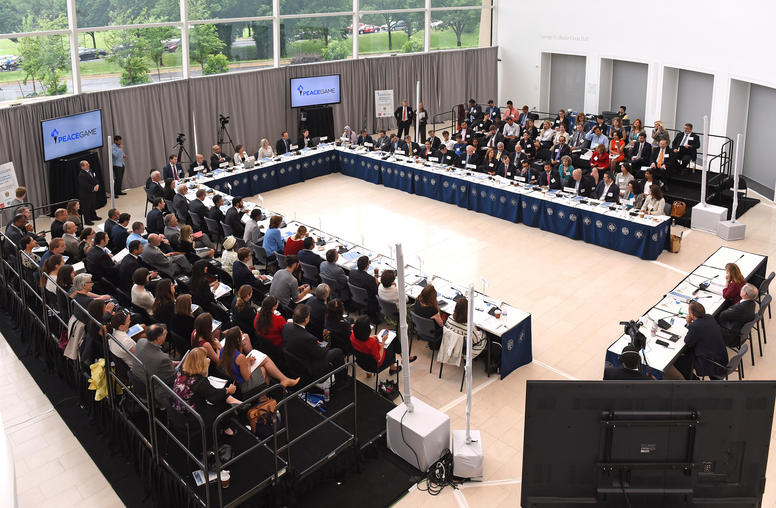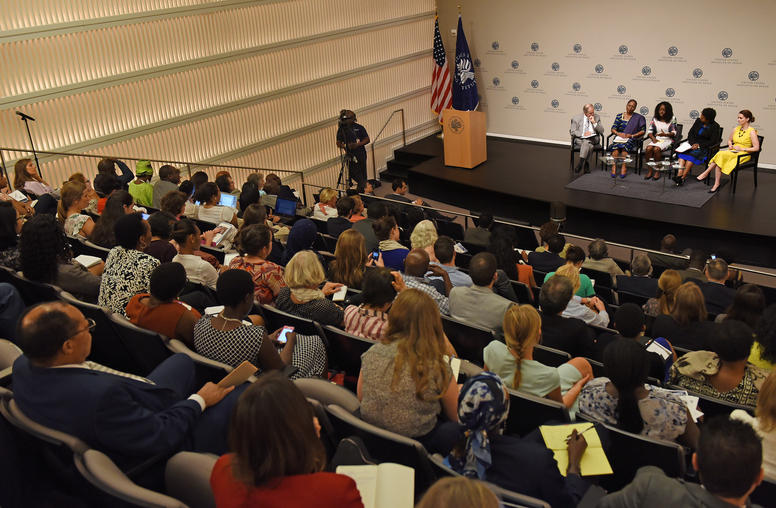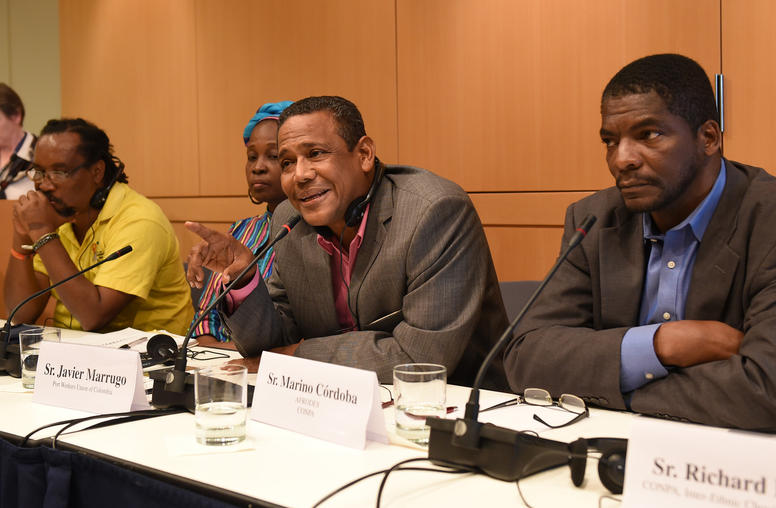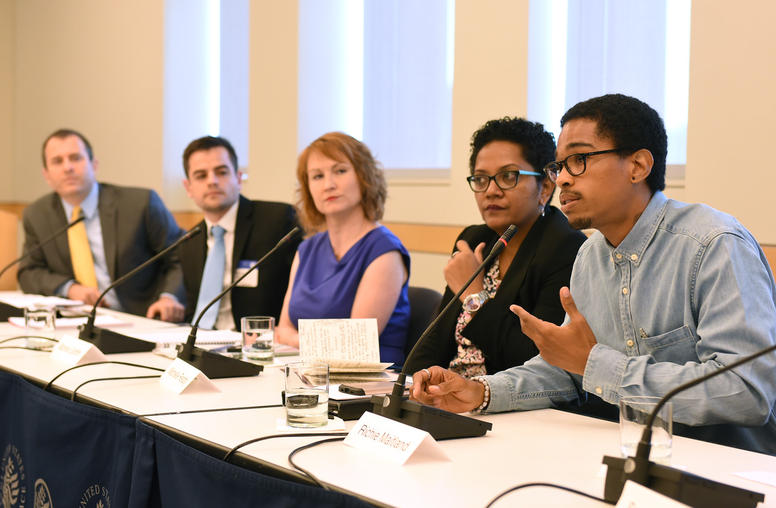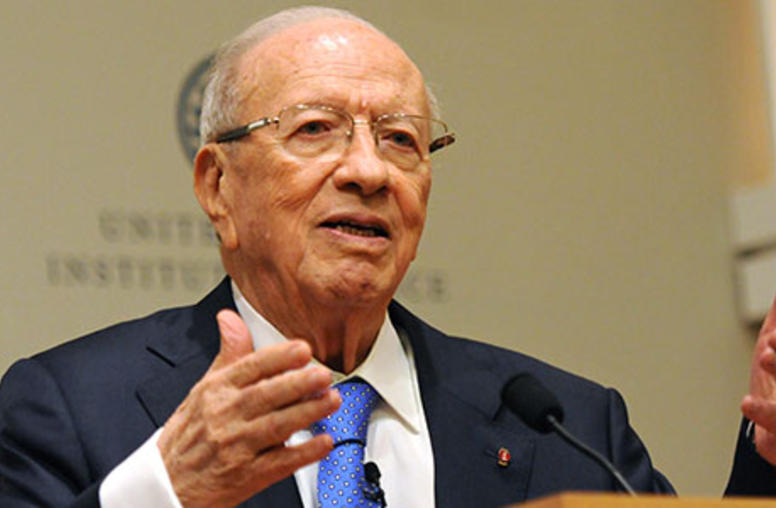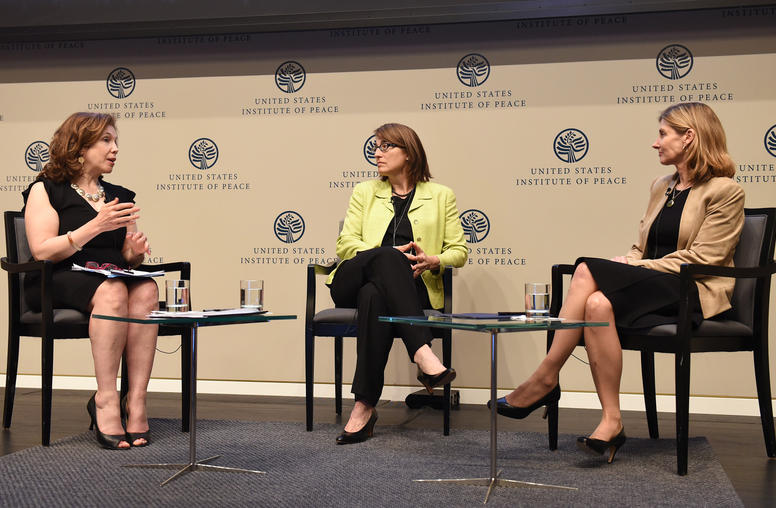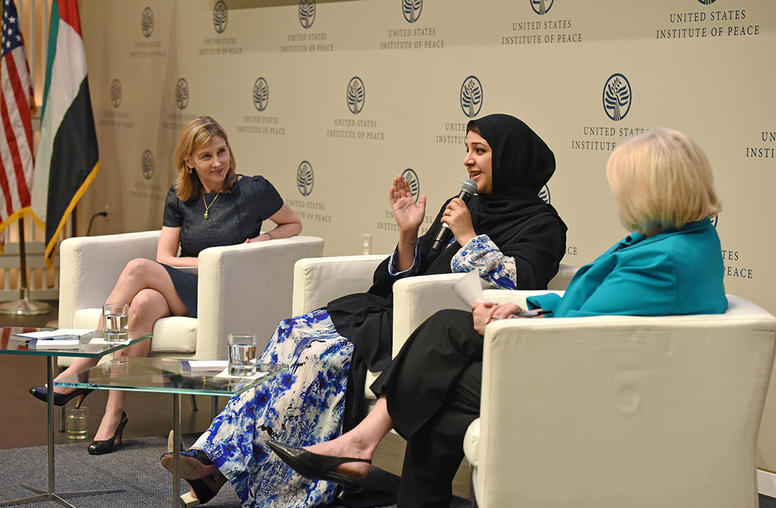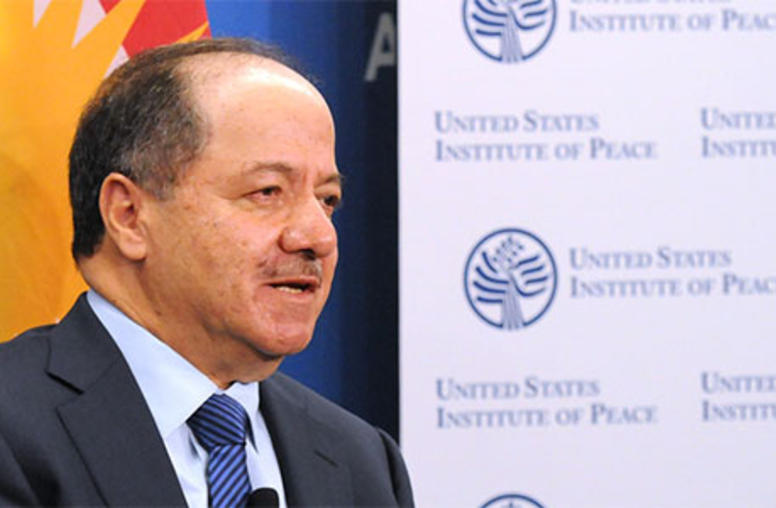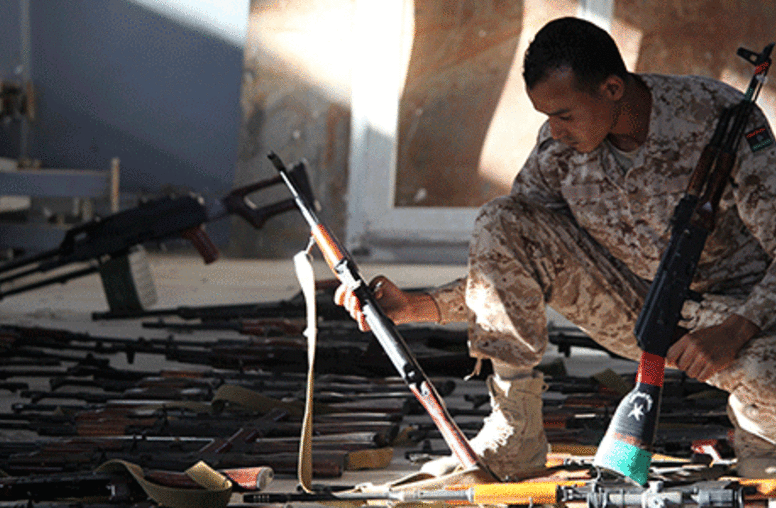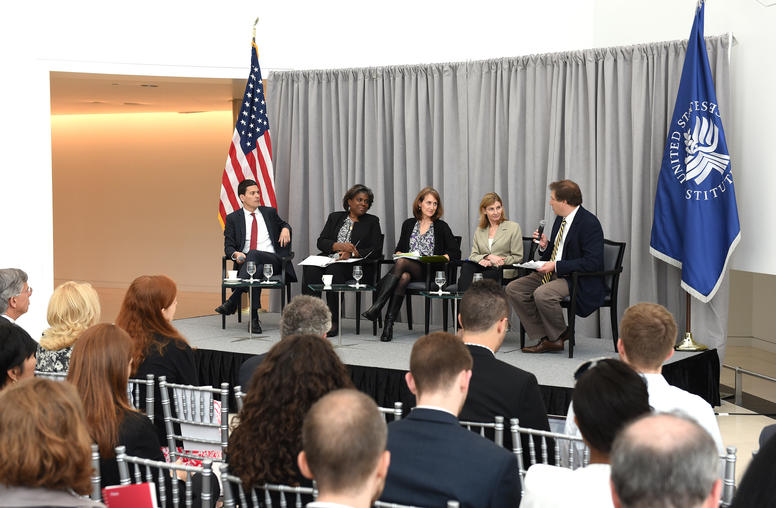
Fragility, Conflict & Humanitarianism
U.S. Assistant Secretary of State Linda Thomas-Greenfield, ex-British Foreign Secretary David Miliband and Elizabeth Cousens, a former top American diplomat at the United Nations, joined U.S. Institute of Peace President Nancy Lindborg for a conversation about the connections among state fragility, violent conflict, and humanitarianism. The discussion on June 3 took place as the U.N. finalized its Sustainable Development Goals for adoption at a U.N. Summit in New York in September.
